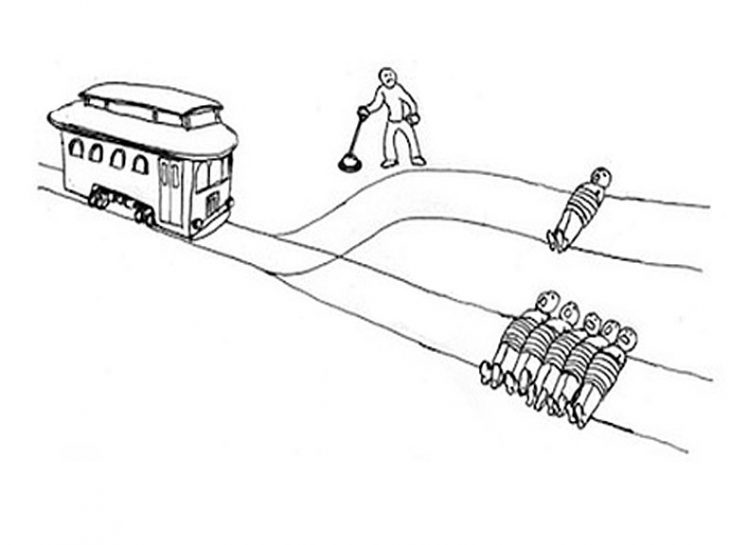If you are not a conservative at 35, you have no brain."
- Quote by Unknown
Disclaimer: All opinions expressed in this post are purely my own personal opinions. I identify as neither a liberal nor a conservative but prefer the label "freethinker." I have critiqued both liberal and conservative positions with a constitutional lens. That said, many of my opinions, but not all, align with liberal policies. This post, however, might be contrarian to prevailing liberal opinions.
This post is a sequel to my earlier post Libreal Overreach and the Global Right Turn. If you have not read that before, do check it out--should be a good warmup to read this one. :)
Now, if the global right turn was the old zeitgeist of our times, the new zeitgeist has got to be the ignominious failures of America's "nation-building" adventurism in the Middle East, first in Iraq and now in Afghanistan. Iraq is now in likely worse shape than under Saddam Hussein, terrorized by ISIS. Afghanistan swiftly returned to Taliban rule as US forces and their allies fled the country. Tens of thousands of lives (American, Afghan, and more), as well as trillions of American taxpayer dollars went down the drain. To what end? To stroke the egos of many naive peddlers of "freedom" (on the right) and "human rights" (on the left). And to enrich America's famed military-industrial complex and their political cronies. Yet, many still clamor for wars and invasions to continue to "save" Afghan women, "save" Yazidis, etc. Whatever happened to a nation charting its own course? Whatever happened to national sovereignty? Whatever happened to multilateralism?
To me, all the blather about America being the "savior of the world" by imposing freedom, human rights, etc. abroad feels like history repeating itself. Over a century ago, it was called "The White Man's Burden". This century, we can very well call it "The White(washed) Liberal's Burden." In this post, I pick apart this burden, describe some blatant hypocrisies I see in it, and share my thoughts on what I believe liberal democracies need to "save" themselves from themselves first.
The past edition of this burden was rooted in so-called "European Enlightenment" (so enlightened that they slaughtered each other, twice within four decades and even worse!), White Supremacy, and the religion of Christianity. The present edition is rooted in the Universal Declaration of Human Rights (UDHR), Liberal Supremacy, and the religion of Humanism. There are differences, however, in how convinced they are about how right they are, as well as the flow of money in these civilizing missions. In the former, there were still lingering doubts in some quarters (albeit minor) and money was sucked from the "savages" by the "civilized." In the latter, there seems to be worryingly little doubt and money flows from the "civilized" to the "savages." Both are wrongheaded.
Just to be clear, I am a huge supporter of the human rights doctrine myself. I even wrote an ode to human rights, enumerating many key groups of people who still suffer dehumanization and discrimination. In that post, I also noted how the UDHR is similar to moral religious texts of yore, e.g., Bhagavad Gita, Bible, or Quran. But two fundamental differences exist. First, the UDHR was drafted collectively by a huge chunk of humanity, not by parochial interests of one tribe or nation like those religious texts. Second, the UDHR is grounded not on supernatural delusions but on the mathematical game theory notion of "stable equilibrium" among individuals. But the UDHR was meant primarily as a guide for each nation to chart its own course, not a prescription to violate national sovereignty with external invasions or wars (stopping genocides was the key exception). Even so, the espousal of UDHR, especially by liberals, is replete with hypocrisy, especially when the "universal" part is shamelessly skipped. Next up, I dive into these inconsistencies and the new-age burden.
The Burden of Human Rights Hypocrisies
Conservatives often hypocritically harp on a specific subset of human rights (e.g., right to freedom of religion) but often turn a blind eye to others (e.g., right to equality). Analogously, liberals hypocritically harp on human rights standards for some groups and nations but often turn a blind eye to others. Despite all their (faux) protestations of "championing" human rights, I see at least five major such hypocrisies in the practice of the UDHR: the Islamic world, Israel-Palestine, Chinese Communist Party, corruption in developing nations, and votebank politics. Let me elaborate on each.
1. Failure to Hold the Islamic World Accountable
Many liberals in India, Europe, and the US use kid gloves when talking about the checkered history of Islamic empires, as well as the nasty human rights record of many nations with Islam as the state religion today (e.g., Iran, Saudi Arabia, Pakistan, and Egypt). In fact, many liberals prefer to be apologists for Islamism and Islamo-Supremacism. Such hypocrisy is a major reason for the resurgence of Hindutva nationalism in India and that of far right / White nationalism in the US and Europe. This hypocrisy takes many forms.
First, while liberals rightfully condemn the extensive crimes against humanity perpetrated by European empires, they consistently fail to do so for similar crimes perpetrated by Islamic empires. While there is much talk about the Trans-Atlantic Slave Trade, the Trans-Saharan Slave Trade that predates it and inspired it is typically ignored. Arab and Islamic empires had been enslaving Black African peoples for centuries, just as the Roman Empire before them. Even today, anti-Black racism is common in the Arab world, including literally calling Black people slaves! Such crimes against humanity did not end in Africa. Millions of Hindus, Buddhists, and Sikhs were slaughtered or tortured over centuries in the Islamic invasions of India. So many were enslaved and killed in Central Asia that an entire mountain range got the name Hindu Kush, literally "Hindu Killer"! Indian liberal historians shamelessly covered up many such ethnic cleansing episodes by Islamic empires from Indian history books. Likewise, liberals often claim to respect "indigeneous" cultures in the US, New Zealand, etc. but hypocritically invert that stance when it comes to indigeneous Hindu monuments destroyed by Islamic empires, e.g., like in Ayodhya. If European nations ought to pay reparations for historical crimes, shouldn't Islamic nations--Arabia, Iran, Turkey, Afghanistan, etc.--do so too? If "German Guilt" and "White Guilt" must be a thing, shouldn't "Muslim Guilt" be too? A real liberal will not traffic in such double standards.
Second, criticism of Islam and some of its medieval practices in sociopolitical contexts (as against private religious/spiritual contexts) are often maliciously dubbed by many liberals as "Islamophobia." The real intent is often to muzzle rightful criticism. By such (il)logic, "Naziphobia" should also be a thing! Many ex-Islamic intellectuals such as the brave Ayaan Hirsi Ali and many atheists, freethinkers, and reformists who are practicing Muslims in Muslim-majority nations are thrown under the bus by liberals elsewhere. No wonder the term "regressive left" is now a thing. The world recoiled in horror when the allegedly "barbaric" government of the Islamic State murdered gay men en masse. But the truth is that the allegedly "civilized" Islamic government of Iran is not much better. A real liberal would condemn the pervasive suppression of the human rights of women, LGBTQ+ people, and religious minorities in the Islamic world and hold those nations accountable, not just (rightfully) condemn overreach in the name of Christianity in the US or Hinduism in India.
Finally, American liberals and conservatives are both equally to blame for the prevalence of absolute dicatatorships (including monarchies) in the Middle East. America's meddling in Iran to stifle the democracy there with the dictatorial Shah is what ultimately led to its brutal Islamist regime. Liberals still turn a blind eye to the export of toxic Wahhabist Islamism by Saudi Arabia, the root of many of the disasters in the Middle East today, including many Islamist terrorist groups. A real liberal would leave the Middle Eastern nations alone to chart their own democratic destinies instead of propping up tinpot dictators. Ironically, such independence from US interference is literally what Osama bin Laden wanted for Arabs and what the Taliban want for Afghans! Apparently, this basic logic of national sovereignty is too hard to fathom for many.
2. Failures on Israel-Palestine
Nothing underscores the dysfunction of the United Nations more than the 7 decade-old stalemate of Israel-Palestine. American liberals make a lot of noise about Palestinian human rights but ultimately, they are just as culpable as American conservatives in propping up Israel's continuing brutal occupation. The US has arrogantly vetoed over 50 UN resolutions to hold Israel accountable. It is as if Israel and the US alone are right and the overwhelming majority of the entire rest of humanity is wrong! This hypocrisy is at the root of what makes Islamist terrorist groups appealing to many disgruntled Muslims across the Middle East and South Asia. And then there is trend of malicious elements mislabeling rightful criticism of Israel as "Anti-Semitic." That term has become a perfect example of the parable of The Boy Who Cried Wolf, often leading to actual Anti-Semitism rising. Likewise, there is a lot of noise about getting Palestinian militant and Islamist terrorist groups to disarm and adopt non-violent tactics but little action to ensure that. A real liberal will simultaneously seek to end the American/Israeli stonewalling at the UN to ensure Palestinian human rights and end Palestinian violence to ensure Israelis' right to peaceful existence. Tokenism such as the BDS movement touted by some liberals helps no one.
Personally I believe the two-state solution is not viable due to the massive entanglements between Israelis and Palestinians: economic interdependence, myriad Jewish settlements on UN-assigned Palestinian land (illegal under international law), mixed cities with both Jews and Arabs, displaced landless refugees, etc. I also think ethnonationalism such as Zionism or Arab nationalism are anachronistic. In my opinion, Palestinians and Israelis will be better off building a unified state of Israel-Palestine as a multi-ethnic multi-religious secular democracy, not a "Jewish state" or "Arab/Islamic state." After all, Jews have a rightful claim over historical Canaan as their homeland (from which they were ethnically cleansed) just as much as Palestinian Arabs have a rightful claim over the erstwhile British mandate as their homeland (on which a poorly thought out partition was imposed). A federal substructure to ensure diverse democratic representation based on constitutionally codified power sharing between all ethnic/religious groups, repatriation of Palestinian refugees and fair resettlement of lands, while also preserving the Jewish right to Aliyah, and strong affirmative action to help uplift Palestinians impoverished by decades of Israeli colonialism (e.g., using India's quota system as a reference) will help ensure peace in such a unified state. All this may sound delusional, but I think the alternative is actually even more delusional and will only perpetuate hatreds.
3. Kowtowing to the Chinese Communist Party
Flawed neoliberal economics touted by the Clintons are at the root of what decimated the US manufacturing sector and moved jobs to Communist China. Hillary Clinton deserved to lose the Rust Belt in 2016. But who is the biggest beneficiary of this debacle wrought by American liberal shortsightedness? Not American conservatives but the Chinese Communist Party (CCP). A thuggish regime that brutally massacred hundreds of brave Chinese students, intellectuals, and other protestors at the heart of their own capital was hypocritically given a free pass by American liberals in the name of "economic growth." Even today both the US and Europe are beholden to labor and supply chains controlled by the CCP, only boosting their dictatorial power.
Emboldened by liberal complicity in "looking the other way" first on the invasion and oppression of Tibet, then on their violent internal ethnocultural cleansing campaign, and then on the Tiananmen Square massacre, the CCP just accelerated its grip on power, destroying all criticism from within using widespread state terror of arbitrary arrests and torture, the most sophisticated censorship machinery in history to suppress and distort the flow of truth, and now an artificial intelligence-enabled mass-surveillance state to keep people under the CCP's thumbs using fear. But the worst of its crimes against humanity may very well be the ongoing industrialized ethnic cleansing campaign in Xinjiang, which some nations have already deemed a genocide. Of course, the UN is again useless because Communist China is a veto power. It is curious how liberals in the US, Europe, and India do not condemn the CCP at even a fraction of the rate at which they rail against conservatives in their own nations. Is it because such Commies are their far left chums (mirror image of Nazis vis-a-vis conservatives)? Or do they secretly salivate over bringing such Big Government control and muzzling to liberal democracies too?
4. Apologia for Corruption in the Developing World
One of the biggest reasons for the quick collapse of the US-backed Afghan government against the Taliban was the former's massive corruption, a veritable kleptocracy that was deeply unpopular among the people. It is impossible to solve an endemic problem like corruption with external money or militaries. Instead of wasting trillions of American taxpayer dollars on useless guerilla warfare and vanity projects, the US could have invested more in empowering grassroots Afghan activists fighting against corruption, for women's education, for human rights, etc. India too recently saw a massive recent movement against political corruption, ironically helping dislodge a corrupt liberal government. Herein lies a key lesson for liberals everywhere: just cyring hoarse about (faux) "fascism" or "White supremacy" does not mean the alternative will be automatically better.
The same story plays out in much of Latin America, Africa, Middle East, and South Asia. Extensive corruption is typically the biggest factor in keeping many nations impoverished. And yet most liberals fail to combat corruption with the seriousness it deserves. Why? Well, there is some truth to conservative accusations that much of this corruption is perpetrated by liberal leaders. Likewise, many developing nations still have inherent tribalism, civil wars, and other issues. Lack of introspection on such poor governance-related factors is a sorry excuse for external "savior" complexes. Key examples of such self-goals are Zimbabwe, Congo, Myanmar, and some Latin American nations such as Honduras and Guatemala. But there are also positive examples right next to them who are economically more well off, in large part due to combating corruption and due to prudent economic policies: Costa Rica and Chile, Kenya and South Africa, and the famed East Asian "tigers" such as Japan, South Korea, Taiwan, Malaysia, and Thailand.
5. Votebank Politics
Finally, one of the perennial banes of India's multi-party democracy has been votebank politics, where some parties pander to selfish needs of people from a specific caste, religion, or language instead of more prudent rule of law. Liberal parties are often the worst peddlers of this idea, routinely employing a complex caste calculus. Liberal parties also engage in appeasement of Muslim votebanks, e.g., peddling unequal "special rights" for minority religions but seeking government interference in Hindu affairs, or opposing a Uniform Civil Code, which is the norm in secular democracies worldwide. Such hypocrisy has led to majoritarian consolidation among Hindus, ultimately leading to the Hindu nationalist BJP gaining firm control at the federal level.
Indian liberals are yet to learn from such mistakes. For instance, the BJP recently promulgated a controversial citizenship law to grant citizenship to non-Muslims who entered India illegally from Pakistan, Afghanistan, or Bangladesh. Ostensibly, their Muslims were excluded because, well, those nations have Islam as their state religion. But the BJP also has a real Islamophobic streak. The constitutionality of this law is now before the Supreme Court. My read of the law is that it is cruel because many Muslims are persecuted too in those nations (e.g., Ahmadiyyas, Shias, and LGBTQ+ Muslims). But it is likely still constitutional because the right to freedom of religion applies only to Indian citizens, not refugees/illegal migrants, and the elected federal Executive has sole authority over naturalization/citizenship policies. As if validating that take halfway, the court refused to suspend the law's implementation prima facie. Overall, naive Indian liberals were put in an unenviable position: supporting illegal Muslim migrants from AfPak/Bangladesh and opposing refuge to Hindus, Sikhs, and Christians who fled from actual Islamist extremism. If Indian liberals genuinely cared about these Muslim refugees, why did they not craft such a law for them in the 50 years they were in power? Due to such hypocrisy, I think India's liberals will remain stuck in the political wilderness for the foreseeable future against the BJP juggernaut.
I see the same trend taking root among American liberals (or perhaps it was always latent). The most glaring recent case is the Democratic Party appeasing Hispanic/Latino votebanks by subverting the rule of law to create shortcuts for illegal immigrants from Latin America. Naturally, resentment has been rising among many White voters, leading to a resurgence of White nationalism. All the while, skilled professionals from India and China are unfairly made to languish in the legal immigration line for even 20 years! Liberals like to cynically exploit the language of "compassion" but why is such "compassion" conveniently manufactured only for Latin Americans but denied to people from Asia, Middle East, and Africa? Why not institute new visa categories with due process and checks for lower skilled immigrants from all over the world, not just Latin America? Is it because they boost liberals' fastest-growing votebank, unlike Syrians, Afghans, or Congolese? Will American taxpayers be forced to bankroll such subversion of the rule of law? Or will more debt bonds be issued to liberals' chums in the oil-rich Gulf Arab dictatorships or worse, the CCP? Thankfully, the Biden administration has seen the light and is course-correcting. They may yet avoid this trap of hypocritical votebank politics.
Concluding Remarks
It used to be that liberalism was known for fostering fearless critical thinking rooted in freedom of thought/speech. Alas, many liberals these days seem more given to intellectual echo chambers, social media bubbles, social justice soundbites, hero worship of naive and/or duplicitous loudmouths, Islamism-apologia, and cancel culture. If all that sounds familiar, it is because many American conservatives have already gone down a mirror image rabbit hole with Trumpism; just swap social justice for White nationalism and Islamism-apologia for Islamophobia. I hope this madness can end and liberals everywhere can engage in genuine introspection to end the hypocrisies I discussed above. That will help liberal democracies reinvigorate themselves and fight the flames of authoritarianism fanned by the dictatorships in Russia and China.
In my opinion, to achieve such reinvigoration, there is a pressing need for genuine and universal adherenece to the UDHR principles, not hypocritical and politically expedient cherrypicking. I outlined five key issues on which this pivot matters. First, hold the the Islamic world accountable, both for its past crimes against humanity and its ongoing abysmal record on human rights. That can start with teaching the full history of genocides and human rights, not lying by omission or covering up truths. Second, end the stonewalling on Israel-Palestine, explore creative solutions that reflect ground realities, and ensure equality for Jews and Arabs/Muslims. Third, hold the CCP accountable and wean the modern world off of its addiction to the goods and supply chains they control. That can start with sanctions against their leadership. Fourth, prioritize the fight against corruption, especially in the developing world. Fifth, combat votebank politics and appeasement policies, especially on illegal migration.
Finally, more specifically to America, liberals must aim to end these ridiculous "civilizing mission" adventurism. The US must abandon the Middle East and let those sovereign nations deal with their issues on their own. As such, the US is now a major oil producer itself and the sun is anyway setting on the fossil fuel era. Israel has nuclear weapons and is capable of defending itself. If Saudi Arabia and Iran want to kill each other, that is not the American taxpayer's problem. Likewise, Europe, Japan, and South Korea can handle more of their own security against Russia, China, and/or North Korea instead of bleeding America. And finally, the US must stop meddling in other democracies, now that they got a taste of their own medicine from Russia in 2016. The US has enormous social and economic challenges to tackle in its own society. It is time for liberals to show they can deliver actual results where they are needed the most: at home, not abroad.



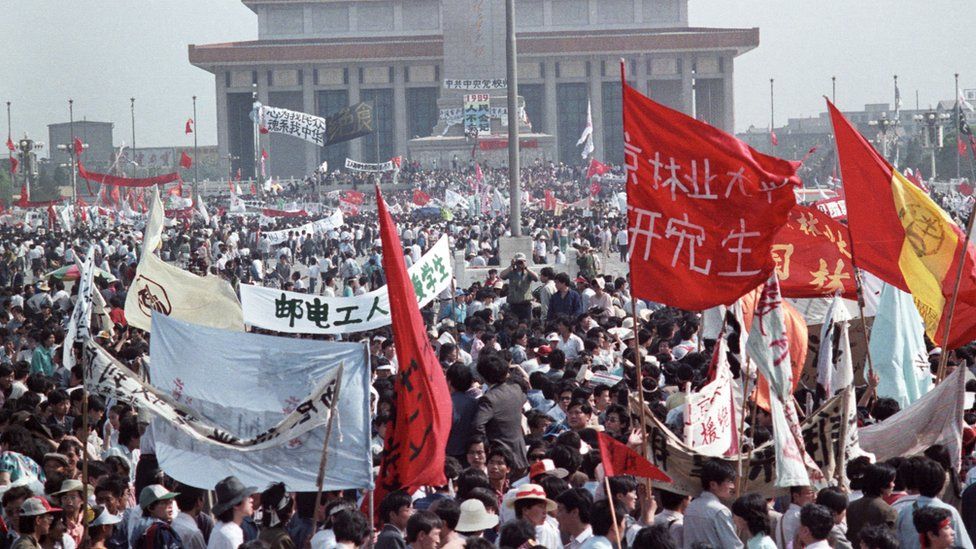

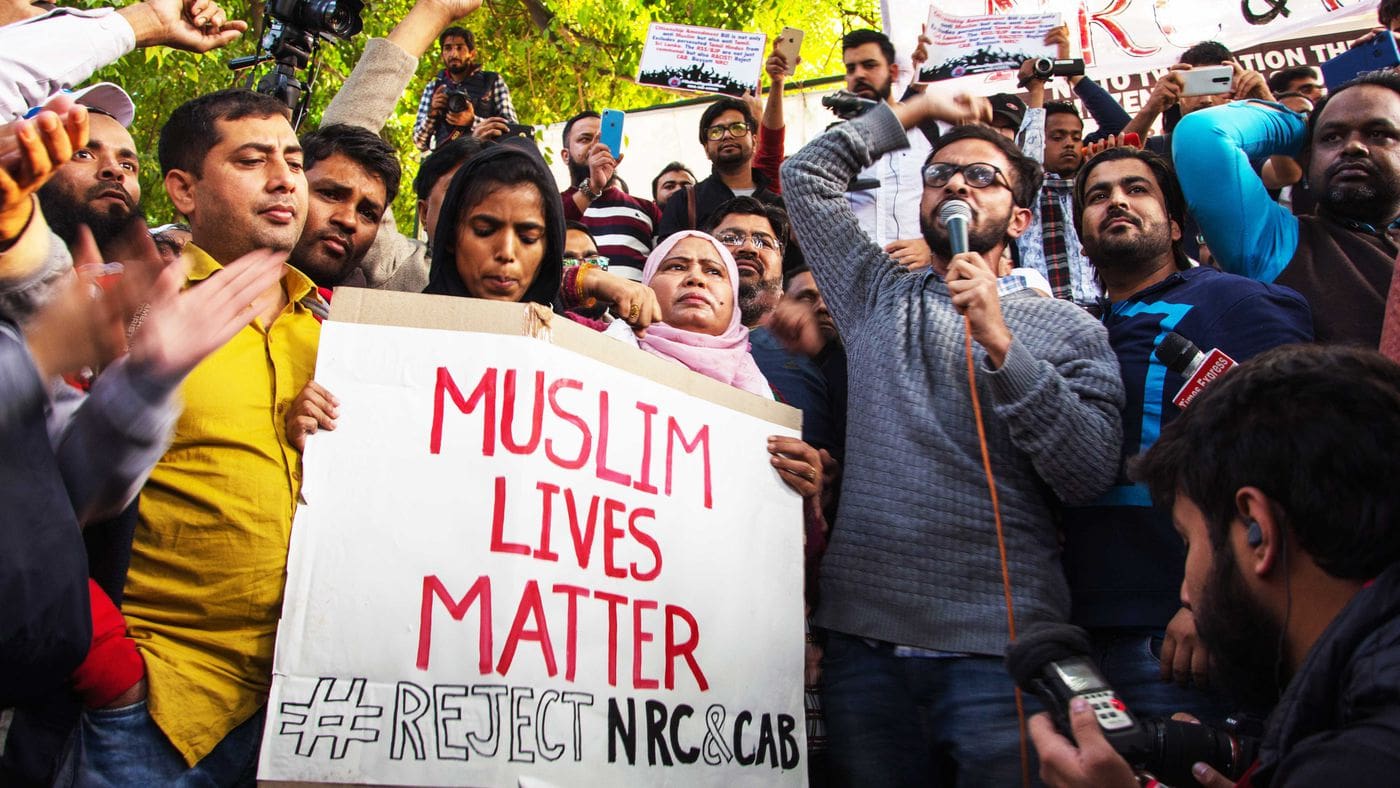









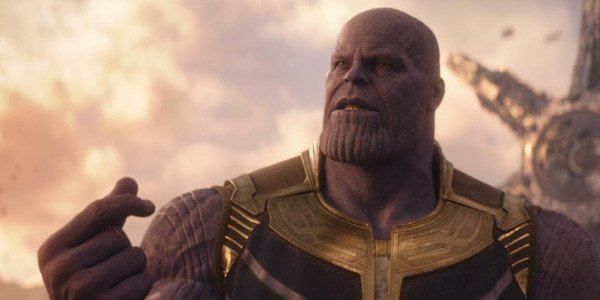

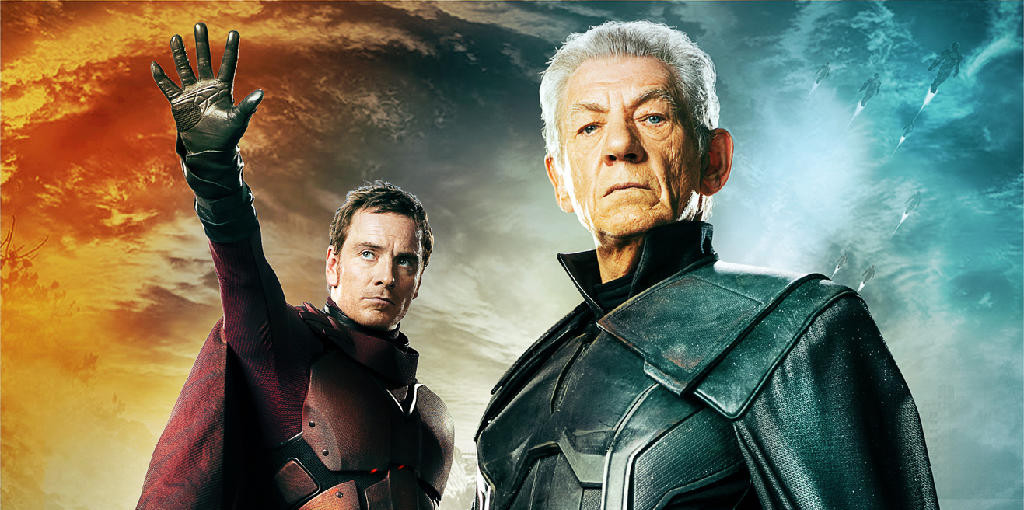




/cdn.vox-cdn.com/uploads/chorus_image/image/49714815/apocalypse.0.jpg)
